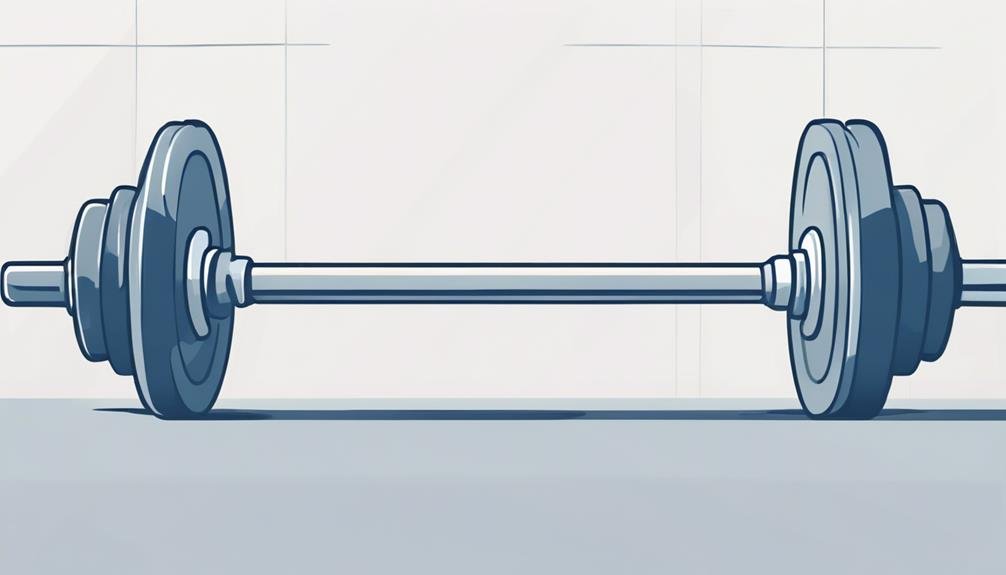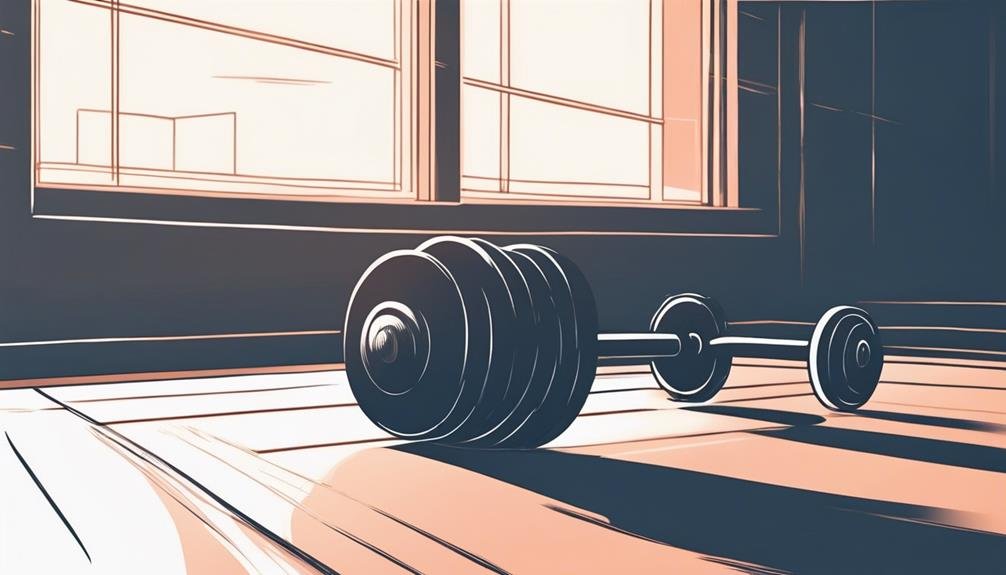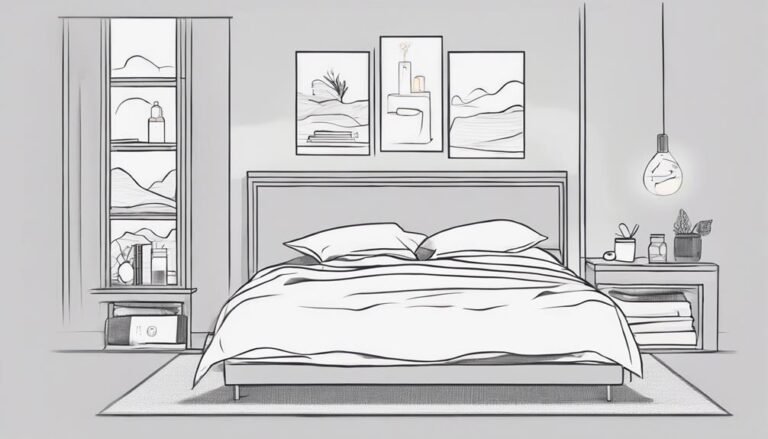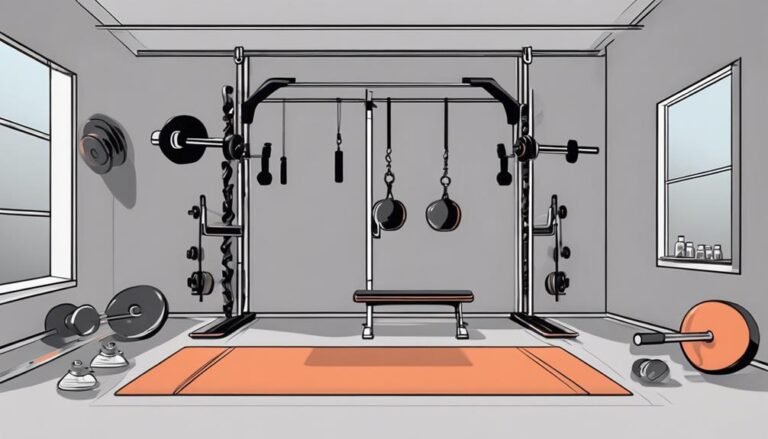5 Signs of Low Testosterone: What to Do
If you're experiencing low energy, reduced muscle mass, a dip in libido, mood swings, and sleep disturbances, you might be facing low testosterone levels. You may find daily tasks more challenging, and your enthusiasm for activities could be fading. Irritability and sadness might affect your relationships, while insomnia keeps you from feeling rested. To address these issues, consider strength training, a balanced diet, and lifestyle changes like regular exercise. Consultation with a healthcare professional is essential for proper evaluation and treatment options. Stay tuned to discover more strategies for managing low testosterone effectively.
Key Takeaways
- Decreased energy levels and persistent fatigue can indicate low testosterone; consult a healthcare professional for evaluation.
- Noticeable reduction in muscle mass and strength suggests hormonal imbalance; strength training and protein intake are essential.
- A decline in libido is not normal and may require medical assessment; lifestyle changes could improve sexual interest.
- Mood changes such as irritability and anxiety could be linked to low testosterone; mindfulness and exercise may help manage symptoms.
Decreased Energy Levels
Have you noticed a significant drop in your energy levels lately? You might feel more fatigued after a long day at work or struggle to find motivation for your usual activities.
Low testosterone can lead to decreased energy, making even simple tasks feel intimidating. It's not just about feeling tired; you may also experience a lack of enthusiasm for hobbies you once enjoyed.
This fatigue often isn't relieved by rest or sleep. Instead, you might find yourself relying on caffeine or other stimulants to get through the day.
If this sounds familiar, it's important to consult a healthcare professional. They can help identify whether low testosterone is the culprit and guide you toward potential solutions for regaining your energy.
Reduced Muscle Mass

Reduced muscle mass can be a troubling sign of low testosterone, leaving you feeling weaker and less capable in everyday activities. You might notice that your workouts aren't yielding the same results, and daily tasks feel more challenging. This change isn't just about aesthetics; it can impact your overall health and well-being.
To combat reduced muscle mass, focus on strength training exercises, such as weightlifting or resistance workouts, at least two to three times a week. Make certain you're consuming enough protein to support muscle growth and repair.
Additionally, consider talking to a healthcare professional about your testosterone levels. They can guide you on lifestyle changes or treatments that may help restore your testosterone and improve your muscle mass.
Low Libido
Low libido can be a frustrating symptom of low testosterone, affecting your desire for intimacy and overall quality of life. You might notice a decline in your sexual interest, which can create distance in your relationships.
It's important to recognize that this isn't just a normal part of aging; it could signal an underlying hormonal imbalance. To address low libido, consider consulting your healthcare provider for a thorough evaluation.
They might suggest lifestyle changes like exercising regularly, improving your diet, or managing stress more effectively. In some cases, hormone replacement therapy could be an option.
Mood Changes

Mood changes often arise when testosterone levels dip, leading to feelings of irritability, sadness, or anxiety that can impact your daily life. You might find yourself more prone to mood swings or struggling to cope with stress. Recognizing these signs is the first step toward addressing them effectively.
| Mood Change | Possible Impact | Action Steps |
|---|---|---|
| Irritability | Frustration in relationships | Practice mindfulness |
| Sadness | Loss of motivation | Engage in physical activity |
| Anxiety | Difficulty focusing | Seek professional help |
Taking proactive measures can help stabilize your emotions and improve your overall well-being. Don't hesitate to reach out for support when you need it.
Sleep Disturbances
Sleep disturbances can greatly affect your daily functioning, leaving you feeling fatigued and unfocused. If you're struggling with insomnia or frequent awakenings, low testosterone levels might be to blame.
Testosterone plays an important role in regulating your sleep patterns, and when levels dip, it can lead to restless nights. You may notice changes in your mood and energy levels, further complicating your day-to-day activities.
To improve your sleep, consider adopting a consistent sleep schedule, creating a relaxing bedtime routine, and minimizing screen time before bed. It's also essential to consult a healthcare professional who can evaluate your hormone levels and suggest appropriate treatments.
Prioritizing quality sleep can greatly enhance your overall well-being and mental clarity.
Questions
How Is Low Testosterone Diagnosed by Healthcare Professionals?
Healthcare professionals diagnose low testosterone through blood tests that measure hormone levels, medical history assessments, and symptom evaluations. They'll consider factors like age, lifestyle, and existing health conditions to determine if treatment's necessary.
Can Diet Influence Testosterone Levels Significantly?
Yes, diet can greatly influence testosterone levels. Consuming healthy fats, lean proteins, and whole foods can boost your hormone production. Avoiding processed foods and refined sugars helps maintain balanced testosterone levels for ideal health.
What Age Do Testosterone Levels Typically Start to Decline?
Testosterone levels typically start to decline around age 30. You might notice gradual changes in your energy, mood, and muscle mass as you age. Staying active and healthy can help manage these changes effectively.
Are There Natural Supplements to Boost Testosterone?
Yes, there are natural supplements that can help boost testosterone. You might consider options like fenugreek, ashwagandha, or DHEA. Always consult a healthcare professional before starting any new supplement regimen for safety and effectiveness.
How Often Should Testosterone Levels Be Tested?
When it comes to keeping your health in check, you shouldn't overlook testosterone levels. It's wise to test them annually, or more often if you notice changes in energy, mood, or physical performance.
Conclusion
If you're feeling more like a couch potato than a powerhouse, it might just be low testosterone.
Isn't it ironic that our bodies, designed for strength and vigor, can sometimes turn into a sluggish version of themselves?
Recognizing these signs is the first step.
So, while you're busy contemplating life's mysteries from the comfort of your sofa, remember: a little awareness and action can help you reclaim that energy and liveliness you thought was lost forever.







